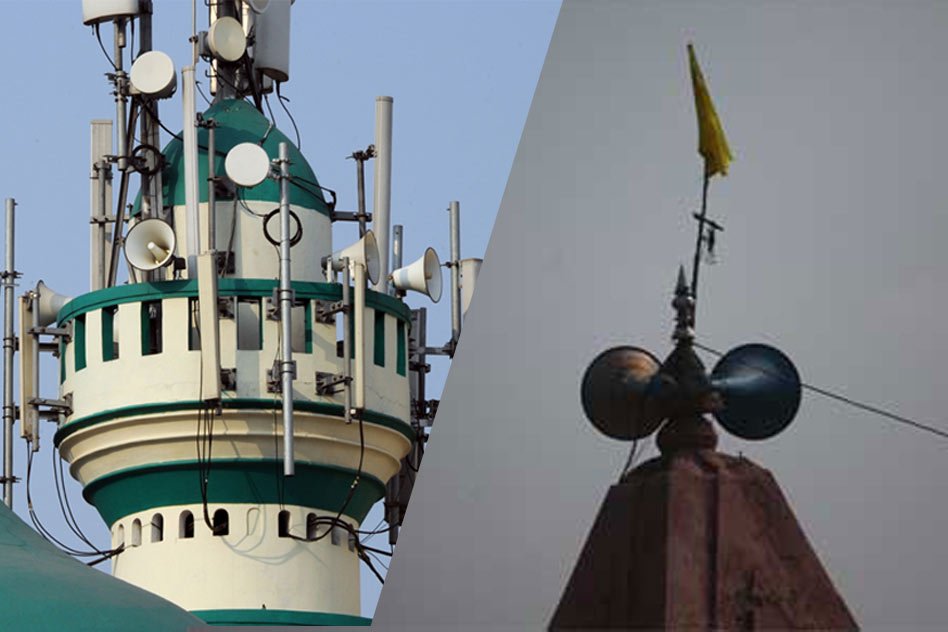Image Source: indianexpress, themuslimtimes
A Navi Mumbai (Vashi) resident, Santosh Pachlag, had filed a petition in the Bombay High Court last year against “illegal use of loudspeakers” by mosques in the satellite city. The court had then directed the police to prohibit religious places from using loudspeakers between 10 pm and 6 am. 45 out of 49 mosques had been using loudspeakers illegally at the time of filing the RTI petition.
Shahkji Umap, deputy commissioner of police, zone 1, held a meeting with representatives of Muslim Ekta Foundation on Monday and discussed about the High Court’s directive regarding ban on use of loudspeakers from 10 pm to 6 am. The young Muslim representatives of the foundation agreed with the court directive.
The police took down loudspeakers form five mosques and two temples as they did not have permission to hold prayers at the venue. The action was undertaken in APMC, Turbhe MIDC and NRI police stations’ jurisdiction. Two of these mosques were in Turbhi MIDC and three in APMC. Umap informed that the temples can use the loudspeakers till 12 am on special occasions like Ganeshotsav after taking permission from the police.
This directive is also in keeping with the Supreme Court ruling of to control noise pollution by issuing a series of guidelines, including restrictions on the use of loudspeakers in public places and norms for the use of high-volume sound systems, generators and vehicles. There is a ban on the use of noisy firecrackers late at night during festivals like Diwali and also a ban on using loudspeakers between 10 pm and 6 am.
The CJI, writing for the bench, said the decibel level of megaphones or public address systems should “not exceed 10 dB (A) above the ambient noise standards for the area, or 75 dB (A), whichever is lower”.
We are sure that this step taken by the Navi Mumbai police comes as a huge relief to those people who forced to go to bed late in the night or get up early in the morning due to Bhajans or Azaans on loudspeakers. The step shall ensure some decrease in noise pollution while adding a sense of civic responsibility to the religious places. After all, our gods hear our prayers even if we say them in our hearts.











